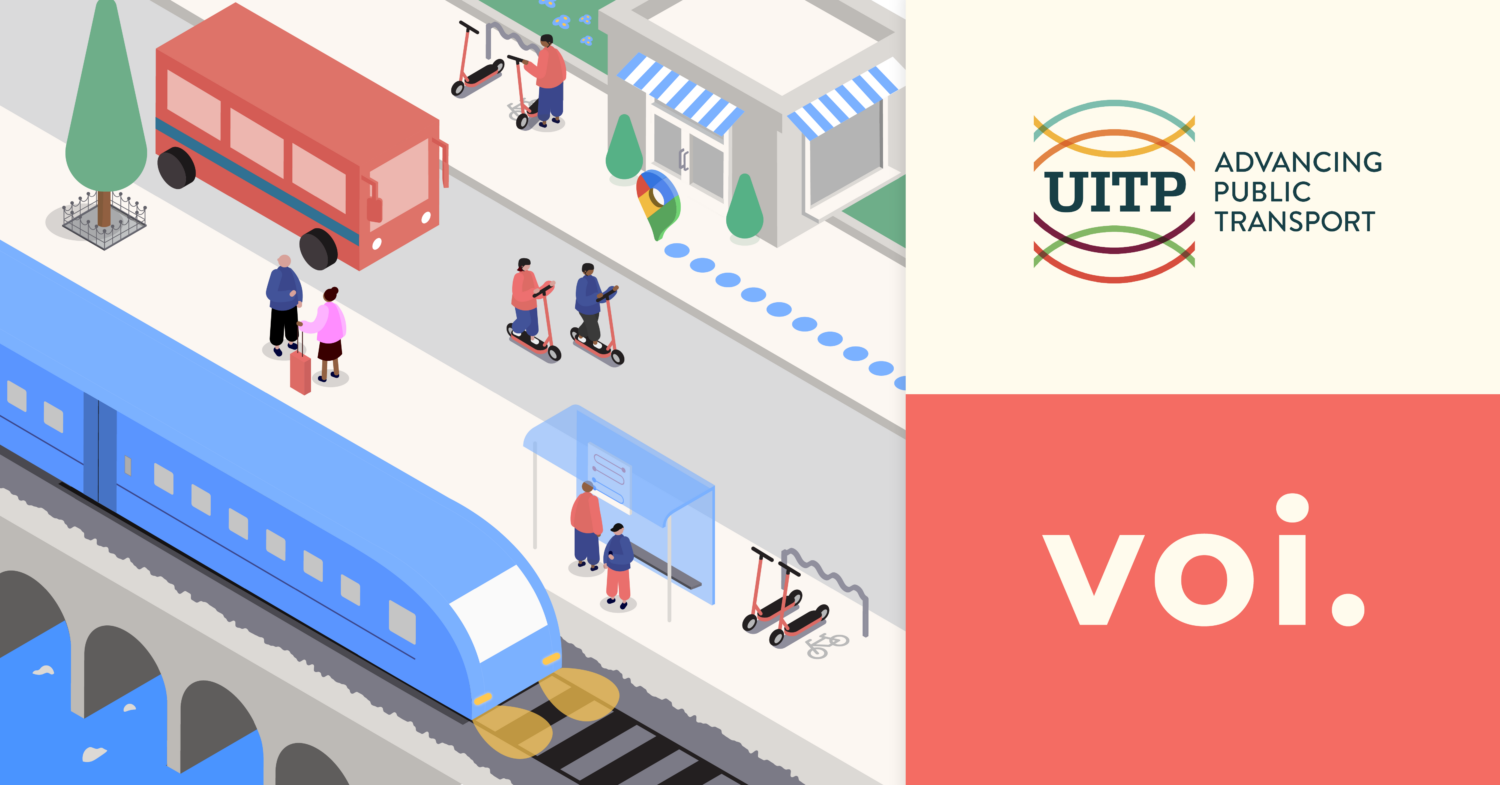UITP and European Investment Bank Sign Partnership, Furthering Sustainable Urban Mobility In Europe
Last week, the International Association of Public Transport (UITP), and the European Investment Bank (EIB) signed a memorandum of understanding (MoU) to strengthen their on-going cooperation in various fields.
Directly after EIB Vice-President, Kris Peeters, and UITP Secretary General, Mohamed Mezghani, signed the MoU, the technical teams of both organisations continued the meeting including discussions on potential areas of further collaboration.

With a vision of sustainable and healthy cities, the EIB and UITP play a significant role in transforming mobility and transport for a low-carbon future in Europe and beyond. They will collaborate in supporting ambitious urban mobility strategies, with public transport and active mobility as the backbone.
Together with long term integrated land use and transport planning and a modal shift towards public transport, the MoU foresees the collaboration in the deployment of zero emission public transport fleets. It also looks towards improving public transport infrastructure to meet ambitious environmental goals.
Kris Peeters, EIB Vice-President, said:I am very glad to have this opportunity to formalise a long term cooperation with the World’s most prominent association of stakeholders in the Urban Public Transport sector. Our two institutions are highly committed to sustainable urban transport. We will be working together to help transport achieve its climate goals and UITP’s stakeholders to overcome the challenges they face in managing innovation and securing funding.
A Sustainable Circular Bus Market
UITP and the EIB recently collaborated in a number of initiatives. In May 2021 for example, they released the knowledge brief on the second-hand city bus market in Europe.
The document discussed the potential of the 15,000 city buses that are removed from operation in Europe each year. By interviewing UITP members and other stakeholders, the brief investigates the current situation and identifies factors hampering a viable second-hand market in Europe.
The topic of circularity is becoming increasingly relevant in Europe as governments are increasingly committed to achieving the Sustainable Development Goals. This results in dismissed buses that either need to be scrapped or sold to responsible operators through the second-hand market.
Diversity to Innovative Thinking; Areas of Collaboration
Following up on the long standing collaboration on zero emission buses, in the next months, UITP and the EIB will work together on encouraging the ‘Total Cost of Owning’ thinking within public transport authorities and operators on bus markets. The organisations will also work on financing concepts for technology transition as an investment opportunity. This is part of UITP’s suggestions to the new EIB Transport Lending Policy.
In addition, mobility and gender is a key topic. In the last years, UITP and its members all around the world have been working with a number of partners, like UN Women, to collect data, provide technical assistance, spread awareness and advocate for inclusive public transport. Ultimate goal is to better serve all passengers, and promote the benefits of a diverse workforce.
Finally, Parties will explore synergies for the development of advisory services to better structure viable transport projects through technical assistance and capacity building programmes in different countries.
Mohamed Mezghani, UITP Secretary General*, said:Our collaboration with the European Investment Bank is key for UITP and has already proven very fruitful over the past years. Not only do we bring together public transport and urban mobility stakeholders, but this partnership helps generate knowledge and expertise. Especially in the highly relevant fields of circular economy, and funding and financing. Our members can also benefit directly though opportunities for funding from the EIB.
What Is the European Investment Bank
Since its establishment in 1958, the EIB has invested over a trillion euros in the priority areas of climate and environment, development, innovation and skills, small and medium-sized businesses, infrastructure and cohesion. The EIB has recently approved a new energy lending policy and is reviewing its transport lending policy in the same light, both confirming its increased ambition in climate action and environmental sustainability.
The Urban Mobility Division in turn focusses on public transport networks such as metro and tram lines and rapid transit bus systems. It also works to promote cycling and walking, and aims to improve public transport through the development of intelligent traffic management and information systems.
- *Acting on behalf of Mohamed Mezghani SARL
This article was originally published by UITP.













